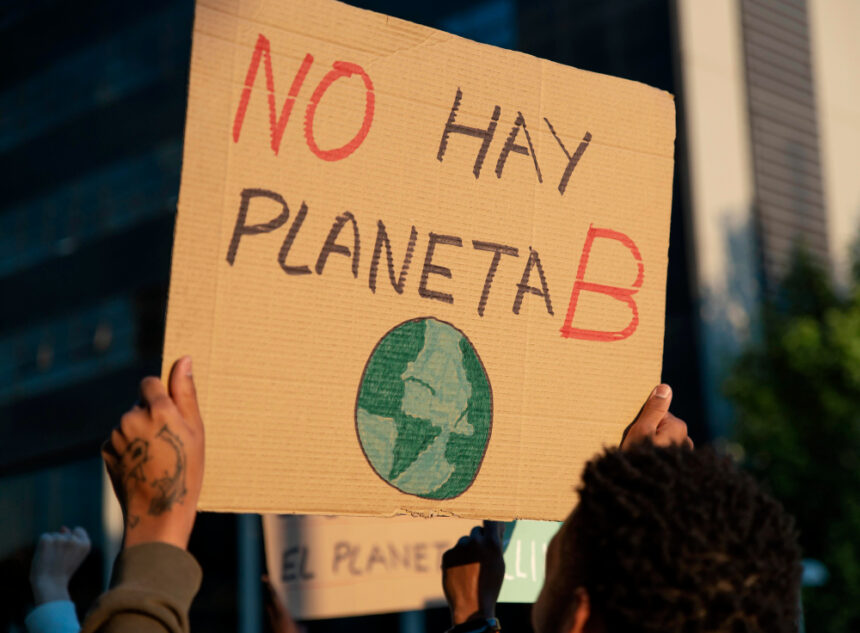In the face of escalating climate crises, relying on capitalism’s profit-driven mechanisms won’t rescue the planet.Instead, it exacerbates environmental destruction by prioritizing short-term gains over long-term sustainability.
The Illusion of Infinite Growth
I would like to begin with the point that the main idea of it belongs to the category of unending development. This kind of model creates pressure to make and look for even higher earnings among markets that leads to environmental deterioration.
But the point is that resources on the Earth are limited, and the uncontrolled growth leads to the exhaustion of stocks, overexploitation of natural assets, and pollution of the environment. T
It is a known fact that economic development has its price, and that price is paid in the form of environmental degradation. Capitalist industries exploit natural resources and cause deforestation, loss of biodiversity, and the polluting of air, water, and land.
The demands for increase in production and consumption hit the head while the ecological capacity of the planet is considered.
The Myth of Green Capitalism
In recent years there has been emphasis on what Francis called “green imperialism”, which is a modern way of carrying out imperialism while at the same time being environmentally conscious. Critics of green capitalism postulate that green capitalism will contribute to the reduction of the effects of capitalism on the environment through concepts like carbon credits and market solutions.
Though such an approach is widely used, it does not always solve the core issues of the environmental issues.
It is in this sense that green capitalism appears substantially as a neoliberal project that prefers symbolic modifications to structural transformations. For instance, although’renewable energy’ is being presented as the remedy to climate change, it rarely seeks to disrupt the capitalist idea of growth.
Often it turns out that green technologies are new commodities that are great to sell, rather than technologies that are created to minimize people’s consumption and the negative impact on the environment.
The manner in which carbon credits have emerged as a financial fix for emissions or how ‘green’ products are profited off, they are only helping to reinforce the capitalist system and not disrupting the capitalist disregard to the destructive forces.
The Inequality of Environmental Impacts
This type of market economy in or out of crisis contributes to the worsening of environmental problems and the enhancement of social injustice. It is therefore important to state that whereas capitalism may be beneficial for certain players, its effects are borne unequally by the environment.
Political elites and the well-endowed are the ones who reap benefits from the natural resources at the expense of the environment, which is degraded by the less endowed citizens of the world.
This is well illustrated in the global south, where people are experiencing loss of forests, poisoning, or adverse impacts of climate disasters owing to effects of capitalist impatience in the global north.
Furthermore, it is well documented that within capitalist societies it is the people of color as well as the less privileged classes that really suffer the impact of environmental degradation. It is apparent that people with low income and other people of color are exposed to industries with pollutants and have poor quality of air, as well as higher incidences of diseases resulting from environmental triggers.
Since the motive of every capitalist is to maximize his profits with little or no regard to the consequences of his actions on the lives and welfare of the people, this clarifies that the task of suffering the effects of the industrial processes is left for the socially weak.
The Need for Systemic Change
If we want to get serious about the environmental crisis, it is necessary to go beyond the framework of the capitalist system. The national and global economic model currently in practice is one of perpetual growth and profit accumulation.
Rather, we should adopt other example models that involve the conservation of the environment, fairly sharing of resources amongst people, and generally sustainable methods of doing business and earning money as opposed to frequenting getting rich quick schemes.
Sustainable living advocates propose changing to a post-growth or steady-state economy, where, for instance, degrowth is proposed to limit consumption, production, and the overall economic domain with the aim of attaining ecological and social balance.
As an agenda, degrowth breaks with the expansionist capitalist model and calls for the satisfaction of needs under ecological constraints.
Also, the so-called circular economy, which proclaims the strategy of reuse, recycling, and minimizing the use of new resources, is safer than the mainstream capitalist ‘take-make-dispose’ consumerism.
Nevertheless, these models too call for a radical change in organizational paradigms and an emphasis on people’s welfare as opposed to the profit-oriented paradigm.
And the globalized economy wrapped in the principles of marks, which are placed at the core of the capitalist world, will not be able to save the planet. The politics of ordinary life can no longer accommodate the environmental crisis—these are solutions that call for radical changes at the interface of social and ecological systems.
Although these strategies can be effective to some extent, such as through the use of ‘green’ technologies and market mechanisms, they are not capable of solving the problems of environmental devastation. Thus, it is high time to go beyond any capitalist models and start developing a postcapitalist future for the sake of the entire population and the planet.
ASH CK

